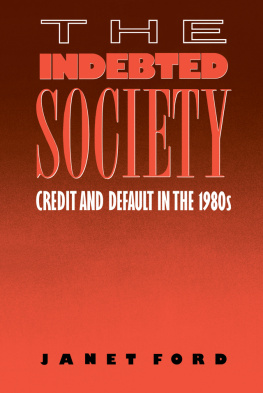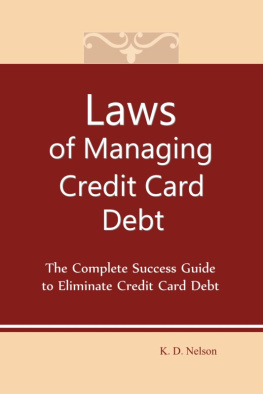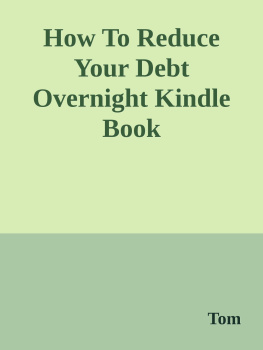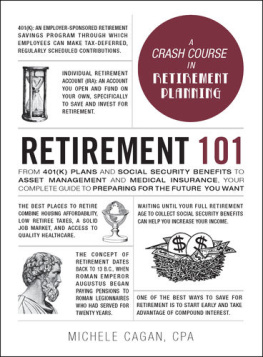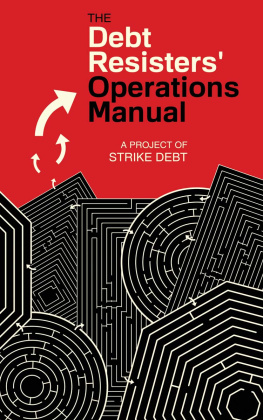
GENDER IN HISTORY
Series editors:
Lynn Abrams, Cordelia Beattie, Pam Sharpe and Penny Summerfield
The expansion of research into the history of women and gender since the 1970s has changed the face of history. Using the insights of feminist theory and of historians of women, gender historians have explored the configuration in the past of gender identities and relations between the sexes. They have also investigated the history of sexuality and family relations, and analysed ideas and ideals of masculinity and femininity. Yet gender history has not abandoned the original, inspirational project of womens history: to recover and reveal the lived experience of women in the past and the present.
The series Gender in History provides a forum for these developments. Its historical coverage extends from the medieval to the modern periods, and its geographical scope encompasses not only Europe and North America but all corners of the globe. The series aims to investigate the social and cultural constructions of gender in historical sources, as well as the gendering of historical discourse itself. It embraces both detailed case studies of specific regions or periods, and broader treatments of major themes. Gender in History titles are designed to meet the needs of both scholars and students working in this dynamic area of historical research.
Women, credit, and debt in early modern Scotland
OTHER RECENT BOOKS IN THE SERIES
Love, intimacy and power: marriage and patriarchy in Scotland, 16501850 Katie Barclay (Winner of the 2012 Womens History Network Book Prize)
Modern women on trial: sexual transgression in the age of the flapper Lucy Bland
The Womens Liberation Movement in Scotland Sarah Browne
Modern motherhood: women and family in England, c. 19452000 Angela Davis
Gender, rhetoric and regulation: womens work in the civil service and the London County Council, 190055 Helen Glew
Jewish women in Europe in the Middle Ages: a quiet revolution Simha Goldin
The shadow of marriage: singleness in England, 191460 Katherine Holden
Women, dowries and agency: marriage in fifteenth-century Valencia Dana Wessell Lightfoot
Women, travel and identity: journeys by rail and sea, 18701940 Emma Robinson-Tomsett
Imagining Caribbean womanhood: race, nation and beauty contests, 192970 Rochelle Rowe
Infidel feminism: secularism, religion and womens emancipation, England 18301914 Laura Schwartz
Being boys: working-class masculinities and leisure Melanie Tebbutt
Queen and country: same sex desire in the British Armed Forces, 193945 Emma Vickers
The perpetual fair: gender, disorder and urban amusement in eighteenth-century London Anne Wohlcke
WOMEN, CREDIT, AND DEBT IN EARLY MODERN SCOTLAND

Cathryn Spence

Manchester University Press
Copyright Cathryn Spence 2016
The right of Cathryn Spence to be identified as the author of this work has been asserted by her in accordance with the Copyright, Designs and Patents Act 1988.
Published by Manchester University Press
Altrincham Street, Manchester M1 7JA
www.manchesteruniversitypress.co.uk
British Library Cataloguing-in-Publication Data
A catalogue record for this book is available from the British Library
Library of Congress Cataloging-in-Publication Data applied for
ISBN 978 1 7849 9253 8 hardback
First published 2016
The publisher has no responsibility for the persistence or accuracy of URLs for any external or third-party internet websites referred to in this book, and does not guarantee that any content on such websites is, or will remain, accurate or appropriate.
Typeset by Out of House Publishing
Contents
In a book that uses debt cases as its main source, it is only proper to list the debts I have accumulated as its author. It began as a PhD funded by the Jenny Balston Scholarship at the University of Edinburgh, and transforming it into a monograph took place mainly during my time as a Social Sciences and Humanities Research Council of Canada postdoctoral fellow at the University of Guelph. I am thankful to both of these institutions for their support. I would also like to thank the staff at the Edinburgh City Archives, Dundee City Archives, National Records of Scotland, and National Library of Scotland, all of whose support for this project from PhD to monograph has been unwavering. Thanks also to the staff at Manchester University Press, whose support and assistance at every stage made a daunting process straightforward and enjoyable, and to the two anonymous reviewers, whose enthusiasm for and interest in this project buoyed my own in the crucial final stages.
For her unwavering support throughout the PhD and beyond, I would like to thank Dr Cordelia Beattie. Similar thanks are due to Professor Elizabeth Ewan, as without her support during my SSHRC fellowship this book would probably not exist. A number of colleagues and friends have also been integral in seeing this process to completion. Colleagues at the University of Keele helped me to see the wider implications and potential of this work as I began the process of transforming it from PhD to monograph. Elizabeth Ewan and the dynamic staff and students who make up the Centre for Scottish Studies at the University of Guelph inspired me and encouraged me to think about my research in new ways, and provided an endlessly fun environment in which to do that. Special thanks to Dr Christine Ekholst, Dr Ian Mosby (McMaster), Dr Heather Parker, Dr Tom Turpie (Stirling), Caitlin Holton, and Alice Glaze for being supportive colleagues and friends. Dr Aaron Allen has been particularly supportive of this endeavour repeatedly asking when the book would be out and Im happy to say Its here!
Finally, and perhaps most importantly, thank you to Andrew Bonnell. Without your support this book would not exist, and it is as much yours as it is mine. This book is dedicated to you.
Between December 1615 and July 1616, Marion Williamson and Patrick Riddell, her husband, appeared before the Edinburgh burgh court three times. These three brief interactions over the course of a period slightly longer than six months serve to illustrate both the diverse ways in which people, and particularly married women, engaged in networks of debt and credit in early modern Scotland, how frequently they might do so, and what the litigation resulting from these networks could reveal about womens economic roles. Marion and Patrick are shown to be moneylenders, landlords, and consumers, while the people with whom they contracted these debts acted as borrowers, tenants, and ale sellers. Roles changed depending on the transaction at hand, and networks were forged between multiple people and reflected a variety of needs, including money, food, drink, lodging, and other necessities related to family and working life.





 Cathryn Spence
Cathryn Spence 

